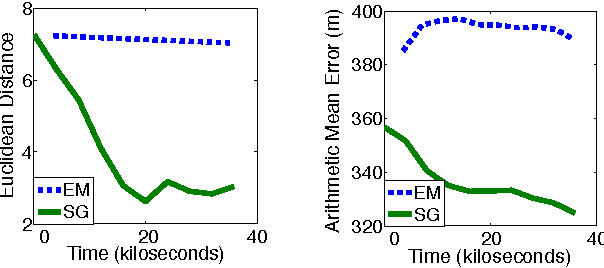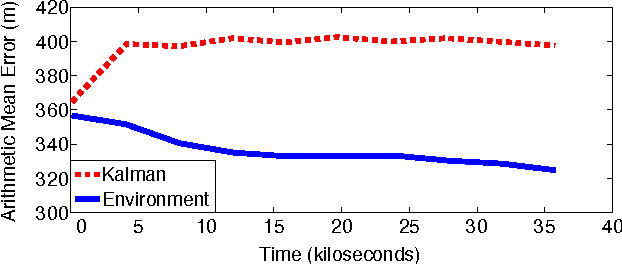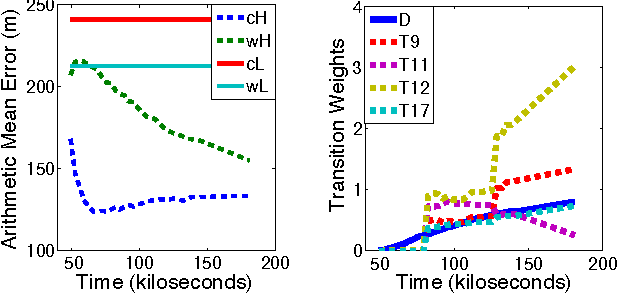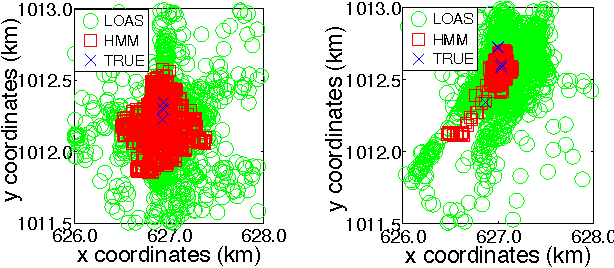Combining Spatial and Telemetric Features for Learning Animal Movement Models
Paper and Code
Mar 15, 2012



We introduce a new graphical model for tracking radio-tagged animals and learning their movement patterns. The model provides a principled way to combine radio telemetry data with an arbitrary set of userdefined, spatial features. We describe an efficient stochastic gradient algorithm for fitting model parameters to data and demonstrate its effectiveness via asymptotic analysis and synthetic experiments. We also apply our model to real datasets, and show that it outperforms the most popular radio telemetry software package used in ecology. We conclude that integration of different data sources under a single statistical framework, coupled with appropriate parameter and state estimation procedures, produces both accurate location estimates and an interpretable statistical model of animal movement.
 Add to Chrome
Add to Chrome Add to Firefox
Add to Firefox Add to Edge
Add to Edge